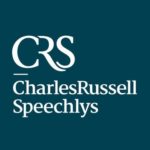Continue reading "Administration of estates: A long-running saga"
Administration of estates: A long-running saga


Continue reading "Administration of estates: A long-running saga"
In 2012, the claimant trustee (K) invested £129m into a joint venture (Spartan), which was alleged have been procured by the deceit of Mr Watson. The action between K and Spartan was settled, with certain agreements between Spartan and K set aside. As a result, K was entitled to treat Spartan as constructive trustee of £129m, which also gave rise to a right to interest under the equitable jurisdiction of the Court, or s35A Senior Courts Act 1981. K continued its claim against Mr Watson, who was found liable to pay equitable compensation to K of all sums which were due f...

Continue reading "Trust deeds: Normal service resumed…"

Continue reading "Professional trustees: Managing risk"

Continue reading "Interest-in-possession trusts: A balancing act"
The claimant was the sole corporate trustee of a trust created by a deed of settlement dated 5 November 1963 and made by a settlor for the benefit of his four children and their respective spouses and descendants. The defendants were two of the settlor’s surviving children, the widows of two deceased children and descendants to the fourth generation. As a result of deeds of appointment made on 28 March 1979 and 31 December 1982, each of the settlor’s four children became entitled to a life interest in their respective one-quarter shares of the trust fund, with reversionary life interes...

Continue reading "Trustees: Lost founder’s rights"
In March 2000 a settlor transferred about US$10m to a company registered in the British Virgin Islands (BVI). In December 2000 the settlor then settled the entire issued share capital of the company upon a BVI discretionary trust. The beneficiaries of the trust were the settlor’s wife and children and the trustee was the defendant company. The trust deed gave the defendant all the powers and immunities set out in what is now the Second Schedule to the Trustee Act (BVI). On the same day in December the defendant and the company entered into an investment management agreemen...
O T
Continue reading "Musings From Manchester: A poisoned chalice?"
Thomas Edward Weetman (the deceased) died on 3 November 2008. His last will was executed on 19 September 2008 (the will). The principal assets in his estate (the estate) were shares in his company Weetman (Haulage & Storage) Ltd (the company) which he had successfully built up during his lifetime, and shares in a property known as Pasturefields Enterprise Park (the property) which the deceased owned but which was occupied, in whole or in part, by the company. The estate was of considerable value but illiquid. The will provided that fifty percent of the deceased’s shares in the ...